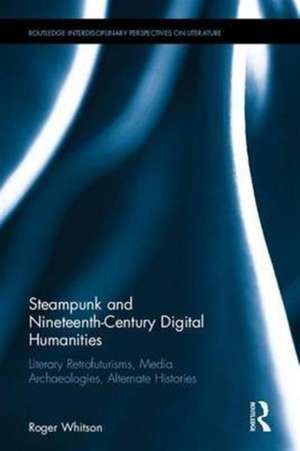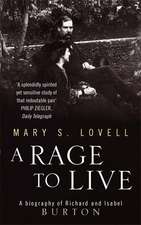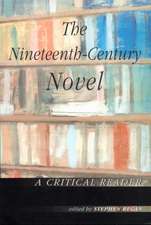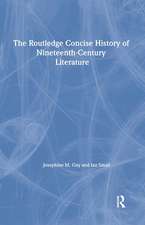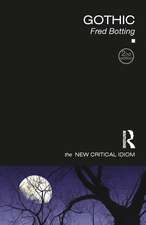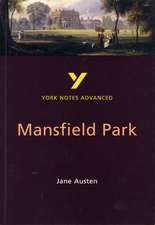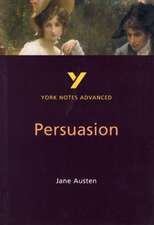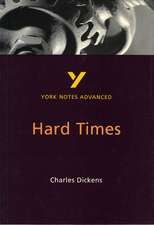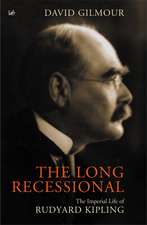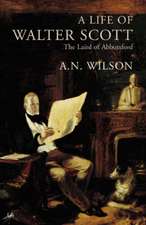Steampunk and Nineteenth-Century Digital Humanities: Literary Retrofuturisms, Media Archaeologies, Alternate Histories: Routledge Interdisciplinary Perspectives on Literature
Autor Roger Whitsonen Limba Engleză Hardback – 22 dec 2016
Along the way, Steampunk and Nineteenth-Century Digital Humanities considers steampunk as a public form of digital humanities scholarship and activism, examining projects like Kinetic Steam Works's reconstruction of Henri Giffard's 1852 steam-powered airship, Jake von Slatt's use of James Wimshurst's 1880 designs to create an electric influence machine, and the queer steampunk activism of fans appearing at conventions around the globe. Steampunk as a digital humanities practice of repurposing reacts to the growing sense of multiple non-human temporalities mediating our human histories: microtemporal electricities flowing through our computer circuits, mechanical oscillations marking our work days, geological stratifications and cosmic drifts extending time into the millions and billions of years. Excavating the entangled, anachronistic layers of steampunk practice from video games like Bioshock Infinite to marine trash floating off the shore of Los Angeles and repurposed by media artist Claudio Garzón into steampunk submarines, Steampunk and Nineteenth-Century Digital Humanities uncovers the various technological temporalities and multicultural retrofutures illuminating many alternate histories of the digital humanities.
| Toate formatele și edițiile | Preț | Express |
|---|---|---|
| Paperback (1) | 389.38 lei 43-57 zile | |
| Taylor & Francis – 10 dec 2019 | 389.38 lei 43-57 zile | |
| Hardback (1) | 1053.16 lei 43-57 zile | |
| Taylor & Francis – 22 dec 2016 | 1053.16 lei 43-57 zile |
Din seria Routledge Interdisciplinary Perspectives on Literature
-
 Preț: 277.97 lei
Preț: 277.97 lei -
 Preț: 311.26 lei
Preț: 311.26 lei -
 Preț: 377.87 lei
Preț: 377.87 lei -
 Preț: 339.95 lei
Preț: 339.95 lei -
 Preț: 311.56 lei
Preț: 311.56 lei -
 Preț: 309.27 lei
Preț: 309.27 lei -
 Preț: 310.29 lei
Preț: 310.29 lei -
 Preț: 310.60 lei
Preț: 310.60 lei - 9%
 Preț: 1007.24 lei
Preț: 1007.24 lei -
 Preț: 371.71 lei
Preț: 371.71 lei - 26%
 Preț: 819.48 lei
Preț: 819.48 lei -
 Preț: 442.71 lei
Preț: 442.71 lei - 18%
 Preț: 1110.74 lei
Preț: 1110.74 lei - 26%
 Preț: 877.19 lei
Preț: 877.19 lei - 18%
 Preț: 1117.43 lei
Preț: 1117.43 lei -
 Preț: 486.38 lei
Preț: 486.38 lei - 18%
 Preț: 700.62 lei
Preț: 700.62 lei - 18%
 Preț: 1063.31 lei
Preț: 1063.31 lei - 18%
 Preț: 707.86 lei
Preț: 707.86 lei - 18%
 Preț: 1117.07 lei
Preț: 1117.07 lei -
 Preț: 488.29 lei
Preț: 488.29 lei - 18%
 Preț: 1057.05 lei
Preț: 1057.05 lei -
 Preț: 383.63 lei
Preț: 383.63 lei - 18%
 Preț: 1109.99 lei
Preț: 1109.99 lei - 18%
 Preț: 1113.16 lei
Preț: 1113.16 lei - 5%
 Preț: 1223.90 lei
Preț: 1223.90 lei - 18%
 Preț: 1036.35 lei
Preț: 1036.35 lei - 18%
 Preț: 1057.89 lei
Preț: 1057.89 lei -
 Preț: 448.49 lei
Preț: 448.49 lei - 18%
 Preț: 1109.99 lei
Preț: 1109.99 lei - 18%
 Preț: 1052.35 lei
Preț: 1052.35 lei - 18%
 Preț: 1118.82 lei
Preț: 1118.82 lei - 18%
 Preț: 1057.09 lei
Preț: 1057.09 lei - 28%
 Preț: 822.01 lei
Preț: 822.01 lei - 18%
 Preț: 1053.16 lei
Preț: 1053.16 lei - 18%
 Preț: 1112.90 lei
Preț: 1112.90 lei - 18%
 Preț: 1109.99 lei
Preț: 1109.99 lei - 18%
 Preț: 1054.27 lei
Preț: 1054.27 lei - 18%
 Preț: 1112.34 lei
Preț: 1112.34 lei - 5%
 Preț: 1222.85 lei
Preț: 1222.85 lei - 18%
 Preț: 1110.74 lei
Preț: 1110.74 lei - 18%
 Preț: 1111.58 lei
Preț: 1111.58 lei - 18%
 Preț: 1112.21 lei
Preț: 1112.21 lei - 18%
 Preț: 1058.38 lei
Preț: 1058.38 lei - 18%
 Preț: 1059.84 lei
Preț: 1059.84 lei
Preț: 1053.16 lei
Preț vechi: 1284.34 lei
-18% Nou
Puncte Express: 1580
Preț estimativ în valută:
201.55€ • 209.64$ • 166.39£
201.55€ • 209.64$ • 166.39£
Carte tipărită la comandă
Livrare economică 14-28 aprilie
Preluare comenzi: 021 569.72.76
Specificații
ISBN-13: 9781138859500
ISBN-10: 1138859508
Pagini: 244
Ilustrații: 40
Dimensiuni: 152 x 229 x 19 mm
Greutate: 0.41 kg
Ediția:1
Editura: Taylor & Francis
Colecția Routledge
Seria Routledge Interdisciplinary Perspectives on Literature
Locul publicării:Oxford, United Kingdom
ISBN-10: 1138859508
Pagini: 244
Ilustrații: 40
Dimensiuni: 152 x 229 x 19 mm
Greutate: 0.41 kg
Ediția:1
Editura: Taylor & Francis
Colecția Routledge
Seria Routledge Interdisciplinary Perspectives on Literature
Locul publicării:Oxford, United Kingdom
Public țintă
Postgraduate and UndergraduateCuprins
Contents
Introduction: Alternate Histories of the Digital Humanities
1 Difference Engines
2 Multicultural Techniques
3 Anthropogenic Computing
4 Dialectical Engines
5 Queer Publics
Epilogue: Processual Histories
Introduction: Alternate Histories of the Digital Humanities
1 Difference Engines
2 Multicultural Techniques
3 Anthropogenic Computing
4 Dialectical Engines
5 Queer Publics
Epilogue: Processual Histories
Notă biografică
Roger Whitson is Assistant Professor of English at Washington State University, USA.
Descriere
Showing how nineteenth-century literary history works when confronted by technological repurposing, electronic-based object work, alternate history, and non-human temporalities, this book theorizes steampunk’s histories and technologies. It examines how the development of steampunk parallels developments in the digital humanities, arguing for a properly digital and conjectural approach to 19C literary history, emphasizing the possibilities in steampunk technology, literature, and culture. It visits authors, programmers, and designers navigating the complexities of alternate history, constructing a Digital Humanities methodology via the historical potential found in the nineteenth century.
